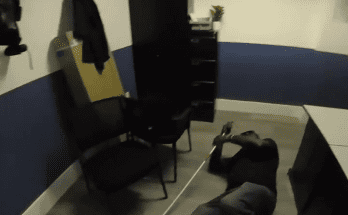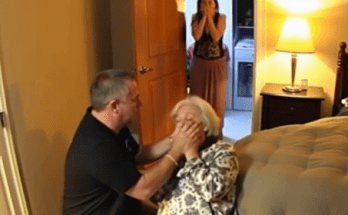For nearly two decades, a man lived behind prison walls for a crime he did not commit. His life was defined by locked doors, missed milestones, and a justice system that had failed him at every turn. Each appeal denied was another crushing reminder that the truth was not enough to set him free. To the public, he was nothing more than a case number lost in the bureaucratic maze of law. To his sister, however, he was everything.
This is the story of how one woman—armed with little more than courage, love, and determination—took on a system that had dismissed her brother and emerged victorious. Her journey is not only about a personal fight for freedom but also a broader reflection on resilience, sacrifice, and the imperfections of the justice system.
A Wrongful Conviction and Eighteen Years of Silence
Wrongful convictions are among the most devastating failures a legal system can make. For the man at the center of this story, the weight of injustice fell hard. Once convicted, the prison doors closed, and life as he knew it ended. The outside world moved on without him. Birthdays, graduations, family gatherings—all of life’s milestones passed by while he remained confined, powerless, and branded as guilty.
He was not just serving time; he was enduring the loss of identity, freedom, and hope. Each passing year was another reminder that the truth had been buried, and the justice system that promised fairness had failed him in the most profound way possible.
Yet, while his case faded from the public eye, it never faded from the heart of his sister. She refused to accept that his story was over.
The Sister Who Refused to Give Up
What makes this story remarkable is not only the eventual release of an innocent man but also the extraordinary path his sister chose to secure his freedom. With no legal training, no influential connections, and no resources beyond her determination, she could have easily felt powerless. Instead, she embarked on a journey that would change both of their lives.
At the time of her brother’s conviction, she had not completed high school. For many people, that might have seemed like an insurmountable barrier to entering the complex world of law. But she refused to be deterred. Fueled by a deep sense of love and responsibility, she returned to school, earned her high school diploma, and pressed forward into higher education.
Her ultimate decision to pursue a law degree was not about prestige, career advancement, or personal gain. It was an act of devotion—her way of equipping herself with the tools she needed to challenge the system that had wronged her brother.
The Long Road Through Law School
The journey through law school is demanding under the best of circumstances. For her, it was even more so. She juggled responsibilities, sacrificed sleep, and poured countless hours into mastering subjects most students spend years preparing to study.
Her life became a cycle of long nights filled with case law, statutes, and transcripts. She combed through boxes of old legal files, searching for overlooked details that might expose the truth. Witness statements, trial transcripts, forensic reports—nothing escaped her attention.
Every discovery fueled her determination. Where others saw dead ends, she saw possibilities. Where courts had dismissed inconsistencies, she saw opportunities to prove her brother’s innocence.
A Courtroom Battle Fueled by Love
After years of preparation, she was ready to face the very courtroom where her brother had been condemned. This time, she entered not as an observer, but as a trained advocate. She stood before the same judges and prosecutors who had once declared him guilty and began methodically unraveling the errors that had cost her brother eighteen years of his life.
Her argument was not only rooted in legal knowledge but also in something far deeper: love, conviction, and an unyielding belief in justice. Unlike traditional defense attorneys, she brought an unmatched personal investment into the fight. She wasn’t just defending a client—she was defending her brother, her family, and the very idea that truth should matter.
Freedom at Last
Finally, after years of battles, setbacks, and relentless perseverance, the verdict was overturned. Her brother’s wrongful conviction was vacated, and he was declared a free man.
The moment he stepped out of prison after eighteen years was bittersweet. Their embrace was filled with tears that carried multiple emotions: grief for the years that could never be regained, joy for the freedom finally restored, and pride in the courage that had carried them through.
While he had lost nearly two decades of his life, he had also gained something rare—a sister whose devotion had proven stronger than the barriers of injustice.
The Broader Meaning of Her Fight
This story is not just about one man’s release. It is a powerful reminder of what resilience, love, and determination can achieve.
It highlights the importance of persistence in the face of injustice and the critical role that individuals can play in challenging systems that often seem immovable. It also serves as a call to examine how wrongful convictions occur and why they persist despite advances in forensic science, technology, and legal safeguards.
Wrongful Convictions in Context
Sadly, this case is not unique. Across the world, innocent people have been convicted due to flawed investigations, unreliable witnesses, inadequate defense, or systemic bias. Organizations such as the Innocence Project have documented thousands of cases where DNA evidence and new legal reviews have overturned wrongful convictions.
Every case is not just a legal statistic but a human tragedy. Years lost can never be restored, and the impact on families is immeasurable. Loved ones suffer alongside the incarcerated, carrying emotional, financial, and psychological burdens.
This sister’s story underscores the critical need for vigilance, reform, and compassion in legal systems.
The Power of Family and Sacrifice
At the heart of this journey is a lesson about family and sacrifice. While legal professionals may dedicate themselves to justice, few can match the intensity of someone fighting for a loved one. Her sacrifices—abandoning a traditional life path, enduring sleepless nights, and persevering through obstacles—demonstrate the extraordinary lengths family bonds can inspire.
Her brother’s freedom is not only a legal victory but also a triumph of human connection. It shows us that the pursuit of justice can be deeply personal and that the strength of love can rival even the most powerful institutions.
A Message of Hope
For those who feel powerless in the face of overwhelming odds, this story offers hope. It reminds us that one voice, one person, and one act of determination can make a difference. Even when the system appears unmovable, persistence can reveal cracks, and truth can find a way forward.
The sister’s journey is proof that ordinary individuals are capable of extraordinary impact. Heroes are not always found in positions of power or influence. Sometimes, they emerge from quiet determination, heartbreak, and the refusal to give up.
Conclusion
The story of a man freed after eighteen years of wrongful imprisonment is both heartbreaking and inspiring. It reveals the flaws of the justice system but also the strength of human resilience. Most importantly, it celebrates the unyielding love of a sister who turned her life into a mission to restore her brother’s freedom.
Her courage and persistence are a testament to what is possible when truth, love, and justice come together. Though the years lost can never be replaced, the victory of freedom carries a message that will continue to inspire others for generations to come.




